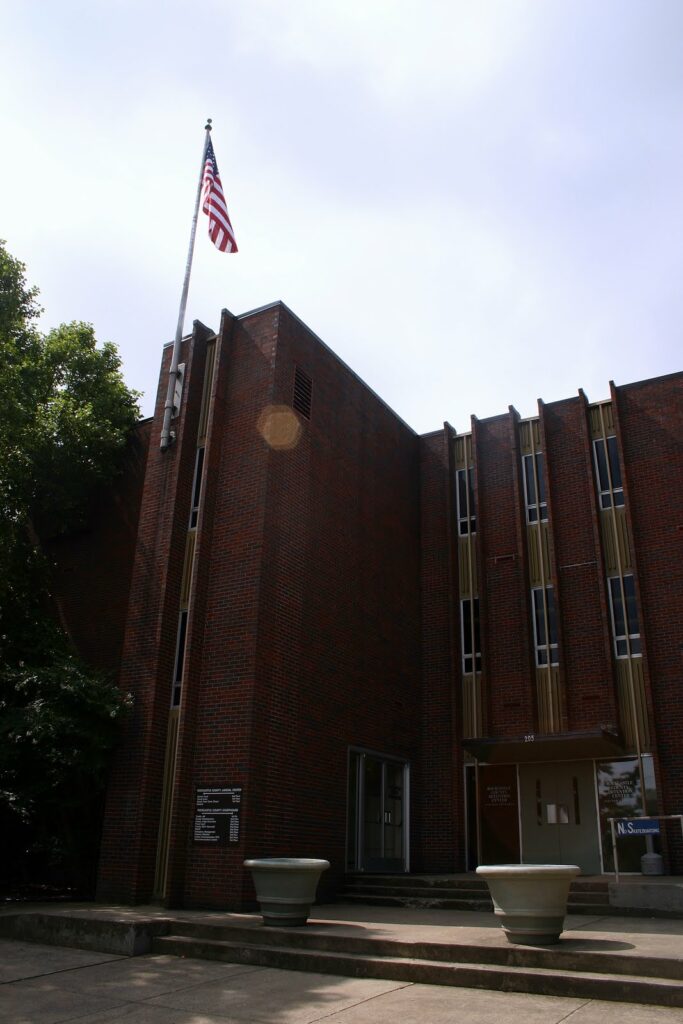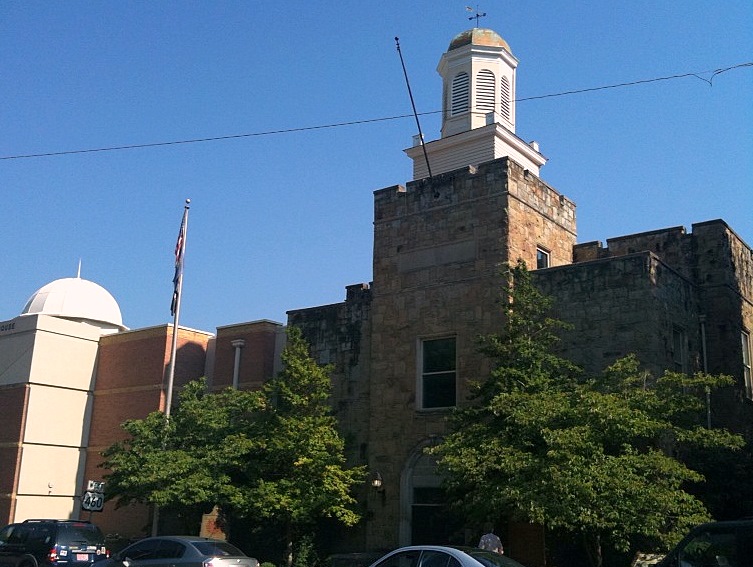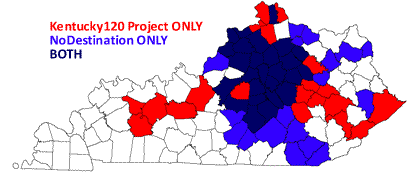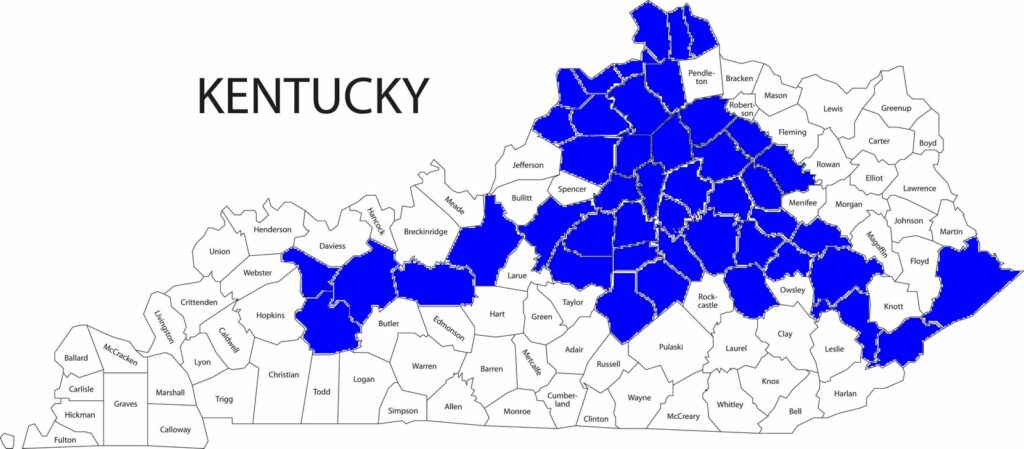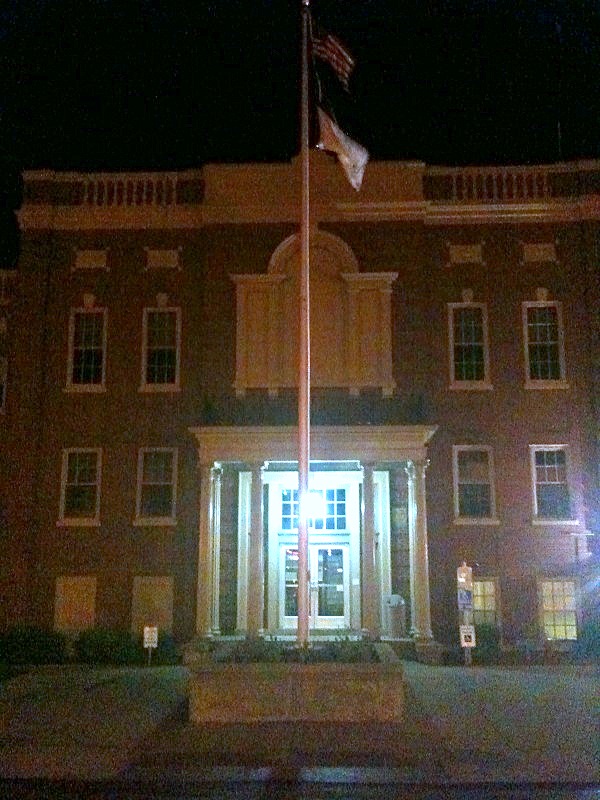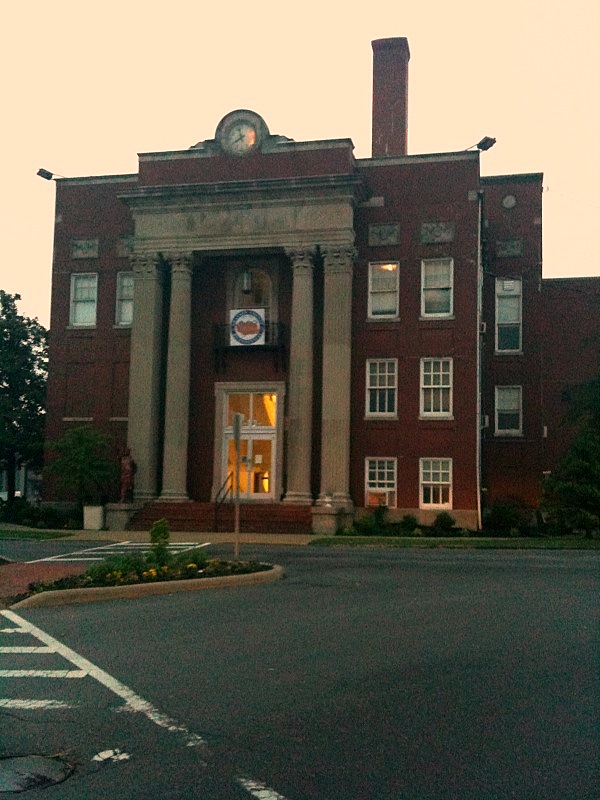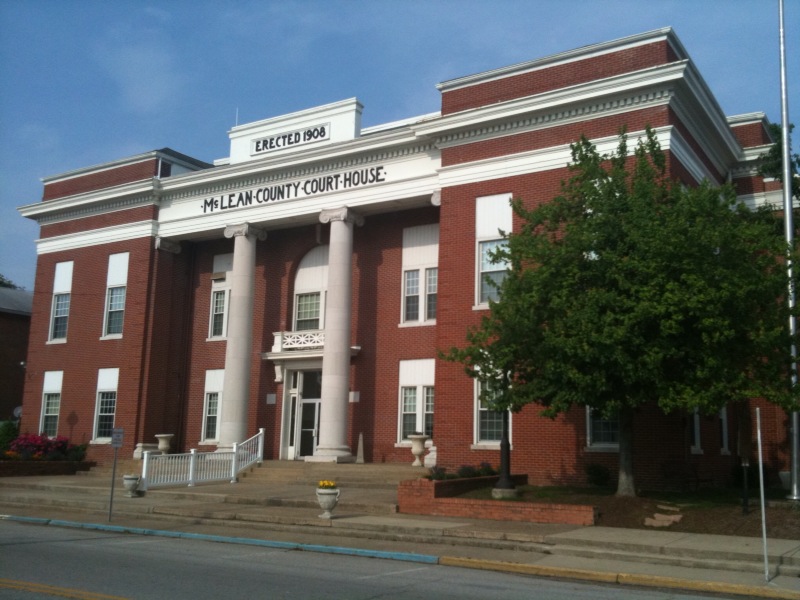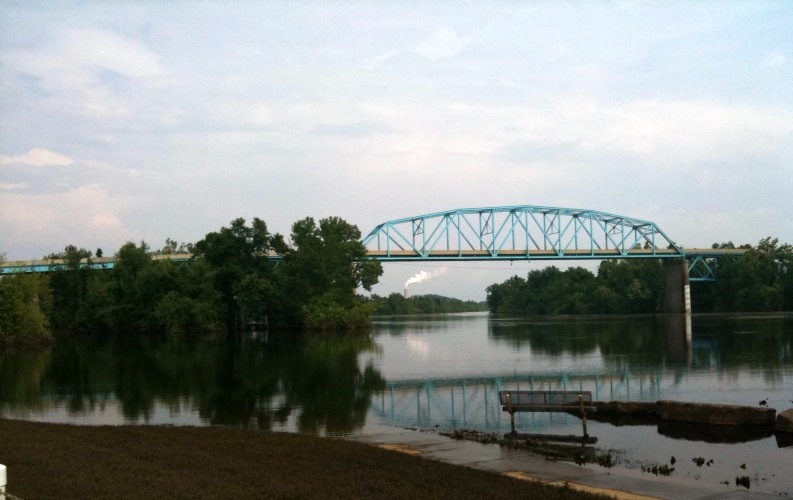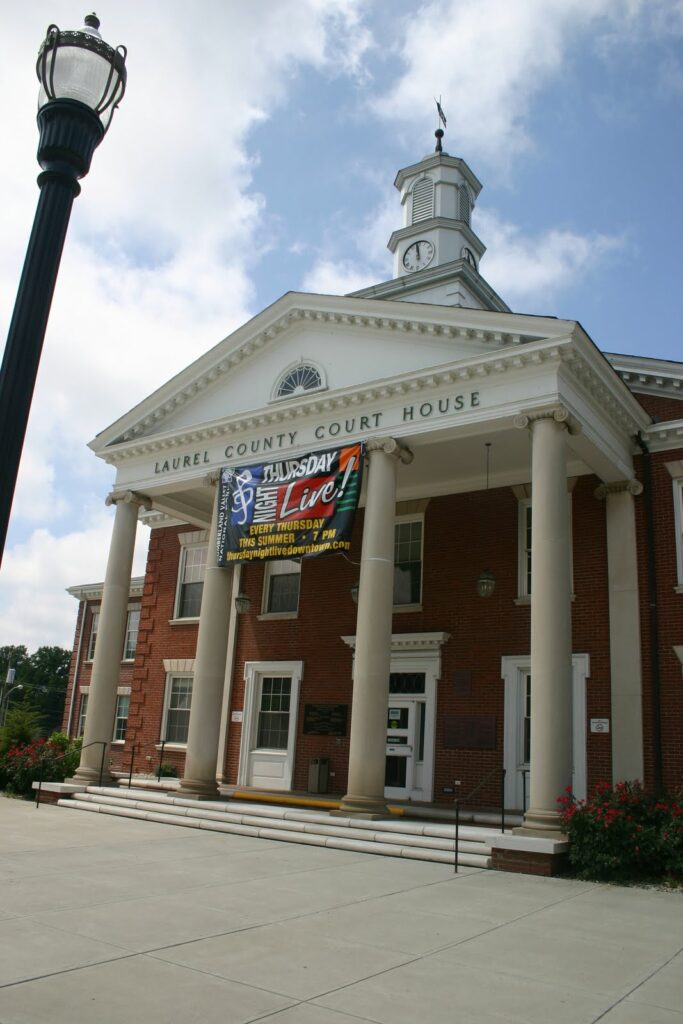 Let me start by saying that the Kentucky Almanac led me astray on the Rockcastle County factoid. There appear to be a number of counties that are not named after people, i.e. Ohio and today’s entry, Laurel County.
Let me start by saying that the Kentucky Almanac led me astray on the Rockcastle County factoid. There appear to be a number of counties that are not named after people, i.e. Ohio and today’s entry, Laurel County.
Downtown London is really nice. Its very clean, and contains a nice mix of older and new buildings. London’s appreciation for aesthetics is really evident in the courthouse pictured above. It is the third courthouse to sit on this site, after a second was destroyed by fire. This Georgian-style courthouse was built in 1961, yet looks much, much older.
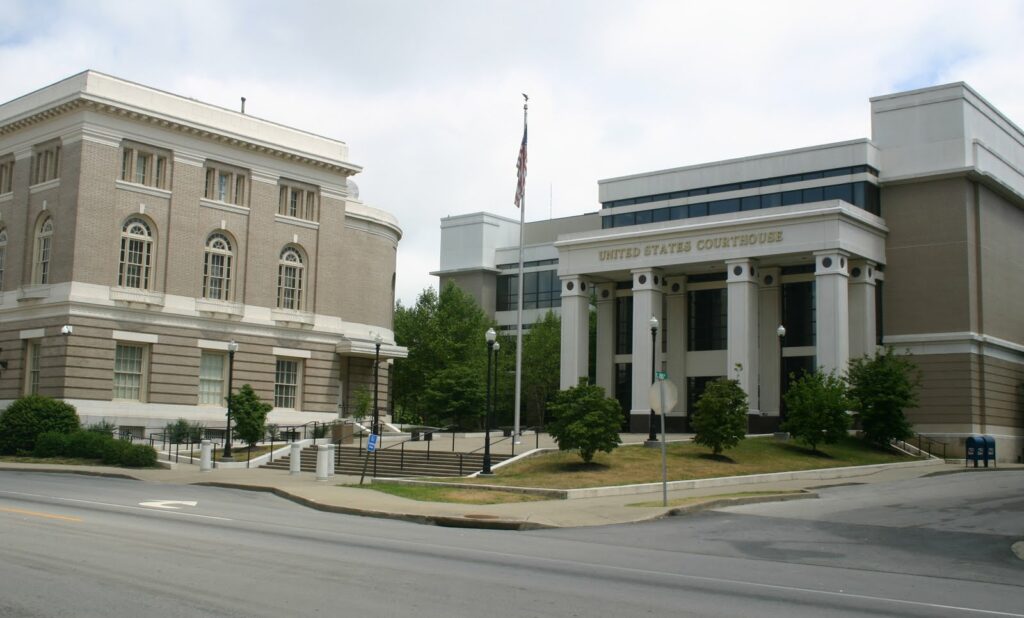
London is also home to a Federal building and courthouse, pictured above. The old Federal building is to the left, and a new Federal Courthouse fits in perfectly with the surroundings. Then, across the street sits. . .
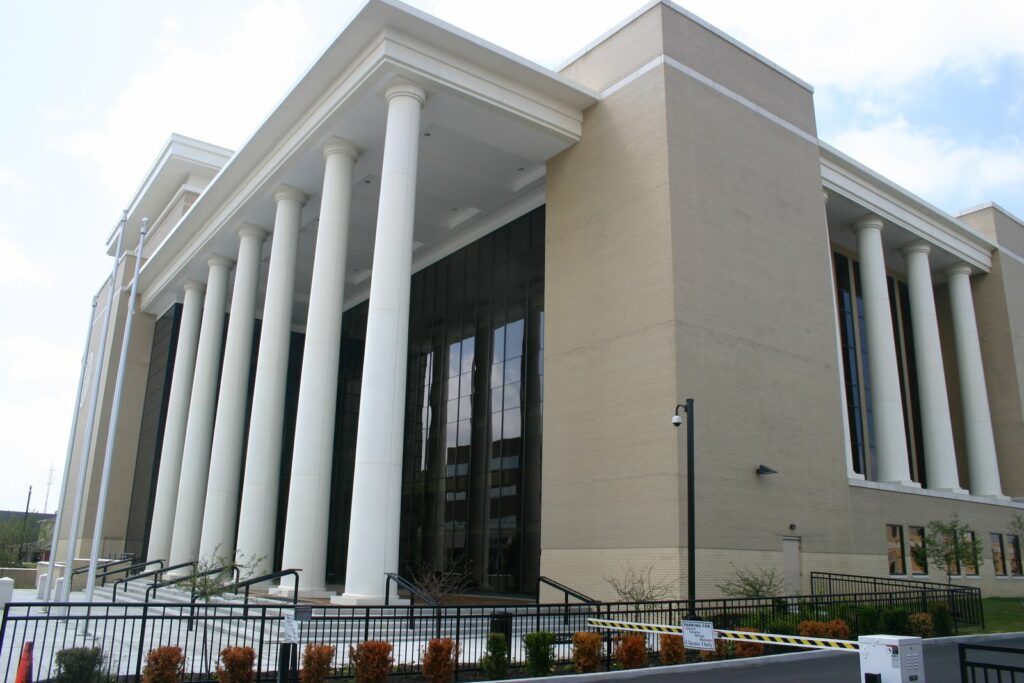
This insanely huge judicial center. I don’t know if the massiveness of the building is really conveyed by this picture, but I can’t imagine that enough business is conducted in Laurel County to necessitate this thing. Maybe I’m wrong.

